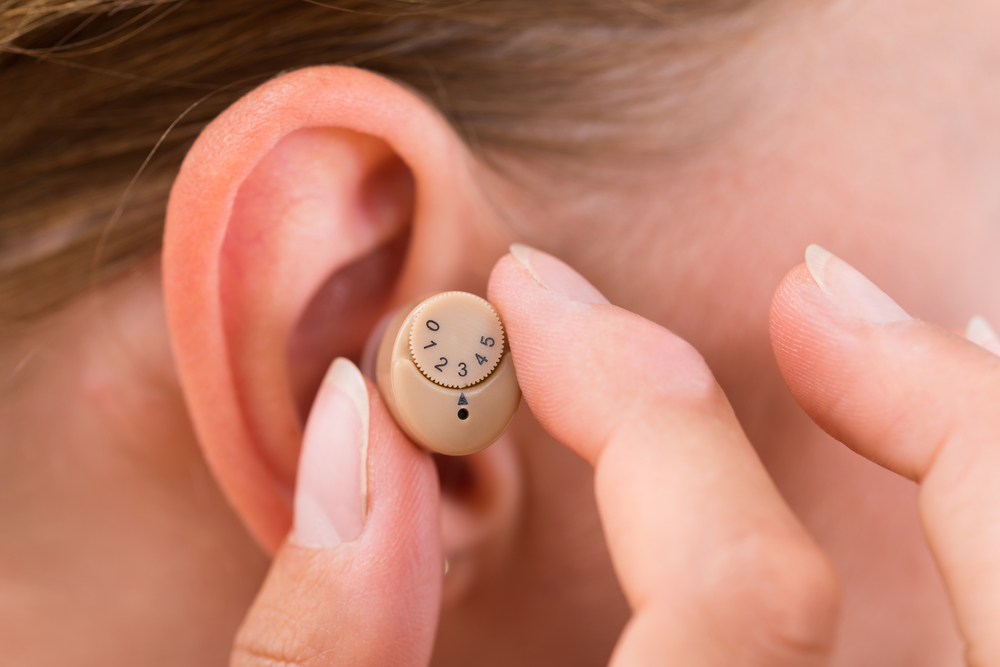The Connection Between Hearing Loss and Depression in Older Adults
Hearing loss affects millions of older adults worldwide, often leading to significant impacts beyond just communication difficulties. One of the most concerning connections is the relationship between untreated hearing loss and depression in seniors. Understanding this link is crucial for better health outcomes and quality of life for older adults experiencing hearing difficulties.

Hearing loss is one of the most common health conditions affecting older adults, with approximately one-third of people over 65 experiencing some degree of hearing impairment. While many consider hearing loss a normal part of aging, its potential psychological impacts—particularly depression—remain underappreciated. This connection deserves attention as both conditions significantly affect quality of life and overall health outcomes for seniors.
How Hearing Loss Contributes to Depression in Seniors
The relationship between hearing loss and depression isn’t simply coincidental. Research suggests that older adults with untreated hearing loss have a significantly higher risk of developing depressive symptoms compared to those with normal hearing. This connection stems from several factors. When hearing becomes difficult, social interactions become challenging and often frustrating. Many seniors begin withdrawing from conversations, social gatherings, and activities they once enjoyed. This social isolation creates a perfect environment for depression to develop.
Additionally, the constant strain of trying to hear and understand speech leads to mental fatigue, anxiety, and frustration. Over time, these negative experiences accumulate, potentially triggering depressive symptoms. The loss of auditory stimulation may also directly affect brain function, as auditory deprivation can lead to changes in brain structure and cognitive processing that may contribute to mood disorders.
Warning Signs of Depression in Hearing-Impaired Seniors
Identifying depression in older adults with hearing loss can be challenging, as symptoms may be attributed solely to communication difficulties. However, several warning signs should prompt further evaluation. These include persistent sadness or emptiness lasting more than two weeks, withdrawal from previously enjoyed activities, changes in sleep patterns or appetite, expressions of hopelessness, increased irritability, and difficulty concentrating.
Family members should be particularly alert if their hearing-impaired loved one begins refusing social invitations they previously would have accepted, expresses feelings of worthlessness, or demonstrates a lack of interest in personal care. These behaviors, especially when they represent a change from normal patterns, may indicate that depression has developed alongside hearing difficulties.
Treatment Approaches for Hearing Loss and Depression
Addressing both hearing loss and depression requires a comprehensive approach. For hearing loss, modern hearing aids represent the primary intervention, with today’s devices offering improved sound quality, discreet designs, and advanced features like background noise reduction and Bluetooth connectivity. Cochlear implants provide another option for those with severe hearing loss who don’t benefit from traditional hearing aids.
For depression, treatment typically involves psychotherapy, medication, or a combination of both. Cognitive-behavioral therapy has shown particular effectiveness for older adults dealing with both hearing loss and depression. Support groups specifically for people with hearing loss can also provide valuable emotional support and practical coping strategies.
Most importantly, research indicates that treating hearing loss often leads to significant improvements in depressive symptoms. One study found that seniors who received hearing aids experienced a 50% reduction in depressive symptoms after just three months of use.
The Economic Impact of Untreated Hearing Loss and Depression
Beyond personal suffering, untreated hearing loss and depression create substantial economic burdens for individuals, families, and healthcare systems. Treatment costs vary significantly based on the severity of conditions and chosen interventions. Hearing aids typically range from $1,000 to $4,000 per ear, while depression treatment costs depend on therapy frequency, medication needs, and insurance coverage.
| Treatment Option | Average Cost Range | Coverage Notes |
|---|---|---|
| Basic Hearing Aids | $1,000-$2,000 per ear | Limited Medicare coverage |
| Premium Hearing Aids | $2,500-$4,000+ per ear | Some Medicare Advantage plans offer partial coverage |
| Therapy Sessions | $100-$200 per session | Often partially covered by Medicare |
| Antidepressant Medication | $10-$200+ monthly | Usually covered by Medicare Part D |
| Cochlear Implants | $30,000-$50,000 | Covered by Medicare with qualifying criteria |
Prices, rates, or cost estimates mentioned in this article are based on the latest available information but may change over time. Independent research is advised before making financial decisions.
The indirect costs are equally significant. Untreated hearing loss and depression are associated with increased healthcare utilization, higher rates of hospitalization, and greater risk of falls and other accidents. Additionally, these conditions often lead to reduced work productivity and earlier retirement, creating financial strain for affected individuals and their families.
Prevention Strategies and Resources for Older Adults
Preventing the depression-hearing loss cycle begins with regular hearing screenings for adults over 50. Early identification allows for timely intervention before communication difficulties lead to social withdrawal and isolation. Protecting remaining hearing is equally important—avoiding excessive noise exposure and using hearing protection when necessary can help prevent further deterioration.
Numerous resources exist to support older adults dealing with these challenges. Organizations like the Hearing Loss Association of America (HLAA) and the National Institute on Aging provide educational materials, support groups, and assistance navigating treatment options. Many communities offer senior centers with programs specifically designed for those with sensory impairments, providing social engagement opportunities in accessible environments.
Technology solutions beyond traditional hearing aids are also becoming increasingly available. Captioning services, specialized telephone equipment, and smartphone apps can help bridge communication gaps and reduce isolation even when hearing remains challenging.
Conclusion
The connection between hearing loss and depression in older adults represents a significant but often overlooked health concern. By understanding this relationship and taking proactive steps toward treatment, seniors can maintain better mental health and quality of life despite hearing challenges. The evidence clearly shows that addressing hearing loss not only improves communication but can significantly reduce depression risk and symptoms, making hearing healthcare an essential component of overall mental wellness for older adults.
This article is for informational purposes only and should not be considered medical advice. Please consult a qualified healthcare professional for personalized guidance and treatment.




